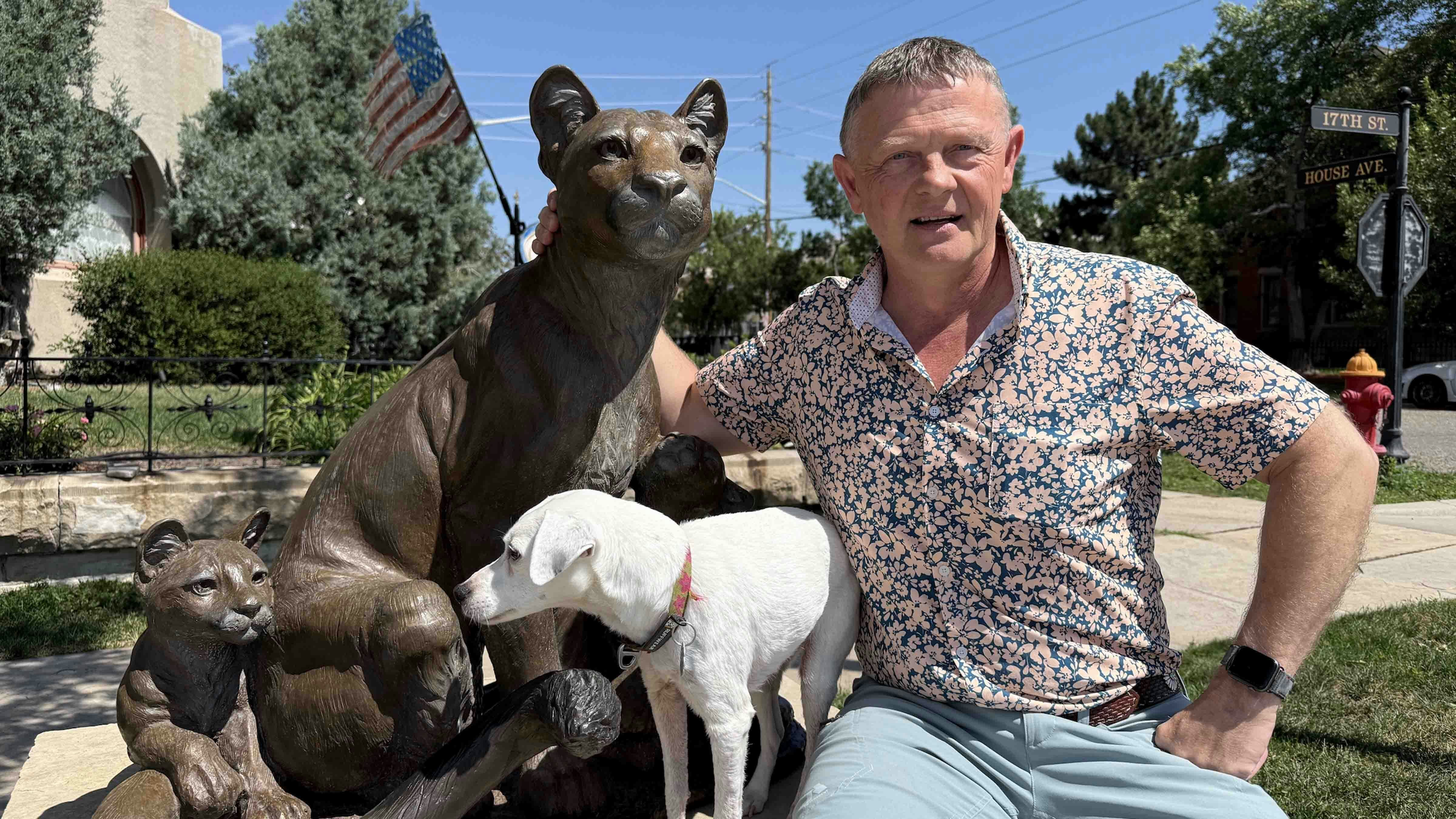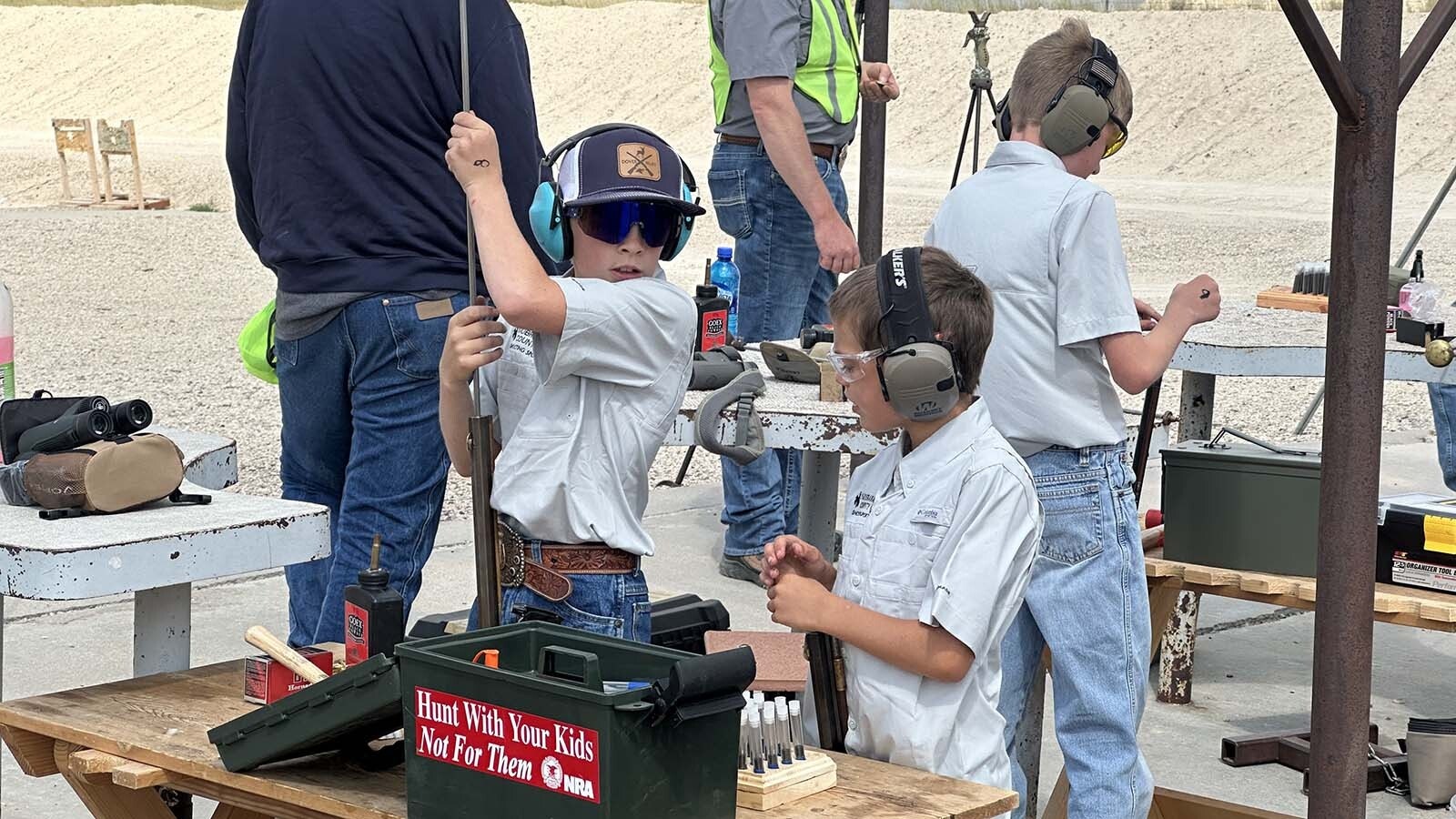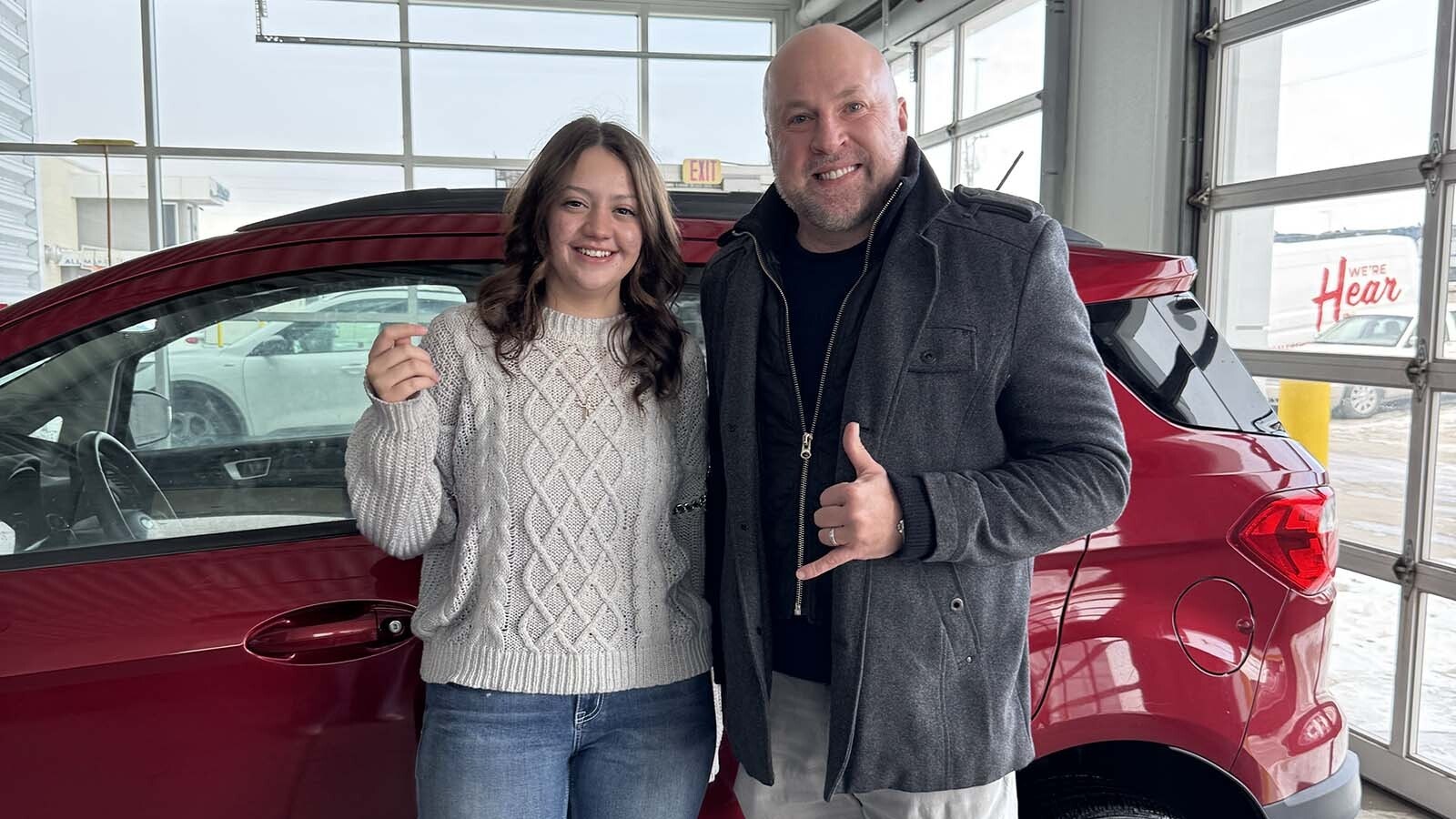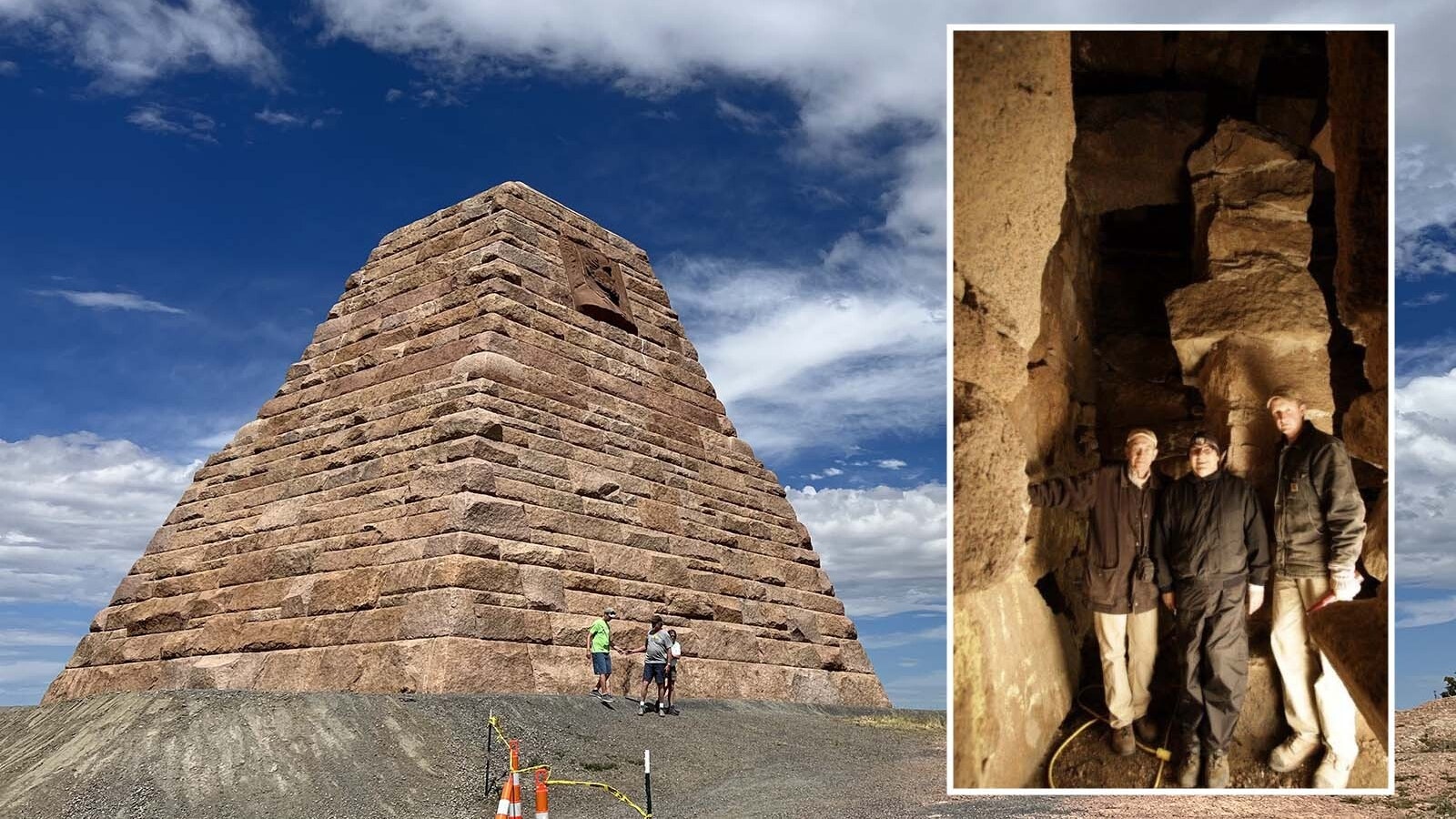Members of the Beutler family are still searching their 14,000-acre range near Elk City, Oklahoma, for horses that died last week from contaminated feed. So far, the death toll is approaching 80.
The custom feed had been exclusively blended for the Beutlers and their premier rodeo stock by the Livestock Nutrition Center in Texas. It was only after it was fed to their horses that it was discovered the feed contained lethal amounts of the cattle antibiotic monensin.
The aftermath has been devastating to the ranch and a historic 95-year-old bloodline of bucking horses. The only surviving horse of that lineage is a bucking mare named Black Kat, which was recently rode to victory by Roedy Farrell of Thermopolis, Wyoming.
It’s also rocked the rodeo community, along with sending ranchers around the region, including Wyoming, rushing to check their own feed.
Dr. Gregg VeneKlasen at Timber Creek Veterinary Hospital in Canyon is the veterinarian for the Beutler ranch and has been involved in the investigation of the poisonings. He explained just how dangerous it is to have this antibiotic mixed into the horses’ feed.
Oklahoma-based Livestock Nutrition Center has confirmed the tainted feed came from its facility and that it was isolated to a batch missed for the Beutlers.
“This likely occurred due to a combination of a failed cleanout procedure and a sensor malfunction,” the company explains in a press release. “We have confirmed this is an isolated incident to this single load of feed from a single family, and no other feed has been impacted and is safe for animal consumption.”
That error was huge, VaneKlasen said.
“Monensin causes the heart to necrosis,” he told Cowboy State Daily. “Even a small amount is lethal to horses. Massive doses can kill cattle.”
He calls what happened to the feed blended for the Beutler ranch a “tragic” example of human error.
Devastated
The Beutler and Son Rodeo Co. has been breeding stock horses for rodeos for 95 years, but now have lost the bulk of their herd to the lethal feed, including their breeding stock. Tests conducted by VeneKlasen have shown that every horse that ate the feed is dead, including some cattle and other animals on the large ranch that had also eaten the feed.
Other of the ranch’s horses that have been found alive are being tested to see if they were exposed to the monensin and so far, none have any evidence of the drug.
It is known that one survivor, the offspring of Killer Bee, had refused to eat the feed. Another survivor, Black Kat, is the only National Finals Rodeo bucking mare left of the Beutler herd. That’s because she was at VeneKlasen’s clinic at the time and missed feeding time.
The poisoning, which has been attributed to human error at the plant that mixed the feed, has done more than devastate Beutler and Sons Rodeo Co., it’s felt across the rodeo community, Vaneklasen said.
“The bucking horse community is a small community,” he said. “We are all feeling their pain.”
“It affects the whole rodeo community to witness such immeasurable sadness,” added Cindy DeLancey, owner of the Hell on Wheels Rodeo Program in Cheyenne. “I just can't even imagine as a person that raises horses and rodeo stock myself.
“Our four-legged animals are family members, you know, and they're just so important. It is painful to see a legendary program like the Beutlers’ suffer this tragedy. They have 95 years of building genetics and this is just beyond words.”
The Beutlers had contracts to fulfill, said DeLancey, and with the loss of so many of horses are unable to send any horses to the rodeos they were scheduled for. Other stock contractors have stepped forward and are sending their animals to those rodeos instead to make good on the Beutler contracts.
“It is extremely heartwarming to see so many of the stock contractors and members of the rodeo family be able to step forward,” DeLancey said. “They are offering any level of support and comfort they can in this really dark hour.”
VeneKlasen refers to himself as part of “Team Beutler” and said the loss is personal.
“I have had calls as far away as Calgary, Canada, asking me about the chances of their feed being contaminated as well,” he said.

Public Panic
VeneKlasen has been fielding calls from past clients since the deadly poisoning was discovered. Others in the horse industry are concerned that this is not an isolated incident despite the company’s assurances it is.
“I’ve been a vet for 42 years,” VeneKlasen said. “I’ve only seen this happen one time before. Usually, it’s just one horse that gets into the feed, but this was on a huge scale, and hit close to home.”
To further quell the public unease, Venklasen’s colleague and equine nutritionist Rachel Mottet has created a list of feed companies and how their particular brands of feed are made and if there is a possibility of cross-contamination at that particular mill.
In a statement released by Mottet, she wrote to assure the public that, “Most U.S. feed companies are extremely safe and reliable, even those with multi-species mills. The greatest safety risk comes from mills that produce ionophore-containing feeds in the same mill and production lines as their equine feeds.
This becomes fewer mills each year, yet there are still some that do this, often for logistical reasons. The most important thing you should find out is what your feed company’s policy is regarding ionophores (the toxic compound involved in this situation) in their equine feed manufacturing mills.”
VeneKlasen advises ranchers to research the companies their own feed comes from if they’re concerned.
“If a mill makes more than one type of feed, say for cattle, pigs, goats or whatever else, this can lead to possible cross-contamination,” he said. “So, it is important to know how your feed is processed.”
The Deadly Drug
The drug monensin has been around for more than 40 years and is used to help cattle grow faster.
“They added it to cattle feed because back then, we saw science as wonderful. We didn’t know about the side effects,” Wyoming cattleman Jack Schmidt said.
He had worked at the Central Plains Feeders feed lot in Oklahoma in the 1980s and had seen the changes brought on by the drug. While there, Rumensin, the brand name for monensin, was being used liberally, including in a few molasses licks.
“It made the cattle grow faster, but a horse has got a different digestive system account,” Schmidt said.
While he still sees the benefit on monensin, he does caution using it sparingly.
“In a feedlot environment where you've got steers, they would be gaining three to three and a quarter pounds a day,” he said. “On the other hand, with the Rumensin, they might gain 3½ pounds a day. That half pound a day, or a quarter pound a day, over 100 days becomes significant.”
VeneKlasen said that when the drug was put into molasses blocks, there was not enough control.
“Too many animals like the molasses and it is toxic, especially when it is not rationed out,” he said. Monesin is now carefully monitored.
Rumensin is still used, but the feed company in Oklahoma is one of the few remaining in the country that makes both cattle feed and horse feed in the same plant.
Public Apology
Livestock Nutrition Center also expressed sympathy for the Beutler family.
“Words are cheap, but we are dedicated to assist and support the Beutler family and make this right because our customers and employees expect and deserve it,” said President Ronnie Castlebury in the company’s press release.
“It’s the first time in my life that I ever saw a livestock nutrition place that actually admitted to this happening,” VeneKlasen said. “That they admitted their guilt is a huge deal.”
Black Kat, The Beutler Ranch Survivor
Only one NFR bucking mare survived the feed tragedy, and that was because 22-year-old Black Kat, who VeneKlasen describes as a sweet mare, was at his clinic being bred rather than at home with the rest of the herd.
She has been to the NFR seven times and is well-liked by rodeo cowboys.
Roedy Farrell of Thermopolis, Wyoming, drew Black Kat at a recent rodeo in Elk City, Oklahoma. The sophomore at Tarleton State University knew he had a time of 87 to beat and he was elated to have drawn such a strong mare.
He also is friends with staff from the Beulter Ranch and feels their loss keenly.
“I know that Black Kat has been around for a long time, and mostly guys that get on her never have really low points,” Farrell said. “You're usually in the money on her. I was pretty blessed.
“It’s just amazing that she made it through that whole tragedy that they had at the Beutler Ranch, and prayers going to them still. She’s just a really awesome horse that bucks every time. You don’t have to worry about her not doing the job.”
VeneKlasen said it was Black Kat that had the luck of the draw. Not only did she survive the feed tragedy, but she had someone who knew how to ride her for the competition.
“We were all wondering if she would draw somebody good and, well, we didn't know who the hell Farrell was,” VeneKlasen said. “We're like, holy moly because he actually stepped it up. And we were all pretty proud of (Farrell), because a lot of people don't ride this horse.”
The ride of Farrell on Black Kat was closely watched throughout the rodeo community.
As the chute opened, Black Kat came barreling out, bucking and kicking in perfect form. Farrell hung on, his hat flying off as the seconds counted down. As the bronc bucked, Farrell pulled his knees up, rolling his spurs up the horse’s shoulders. As the horse descended, Farrell straightened his legs, returning his spurs over the point of Black Kat’s shoulders in anticipation of the next jump.
Farrell scored 88.5 on Black Kat for the mare’s second straight win at the Elk City Rodeo of Champions and Farrell’s first win. The rodeo was held at the Beutler Bros. Arena, which was named after founding brothers Jake, Lynn and Elra.
“Prayers and thoughts going out to the Beutler family,” Farrell said. “It’s really a sad deal that a lot of animals were lost, and by something that was just a freak accident. Don't really know how to describe it, but it was just really terrible.”
As the rodeo community pulls together in support of the Beutlers, Farrell adds, “I know that they're really good people, and they'll be able to get through this.”
“What people don’t know is that she had just been bred,” VeneKlasen said.
As Black Kat paraded around the Beutler arena, the next generation of the Beutler horse was with her even as the ranch is still reeling from a tragic and deadly mistake.
Contact Jackie Dorothy at jackie@cowboystatedaily.com
Jackie Dorothy can be reached at jackie@cowboystatedaily.com.







